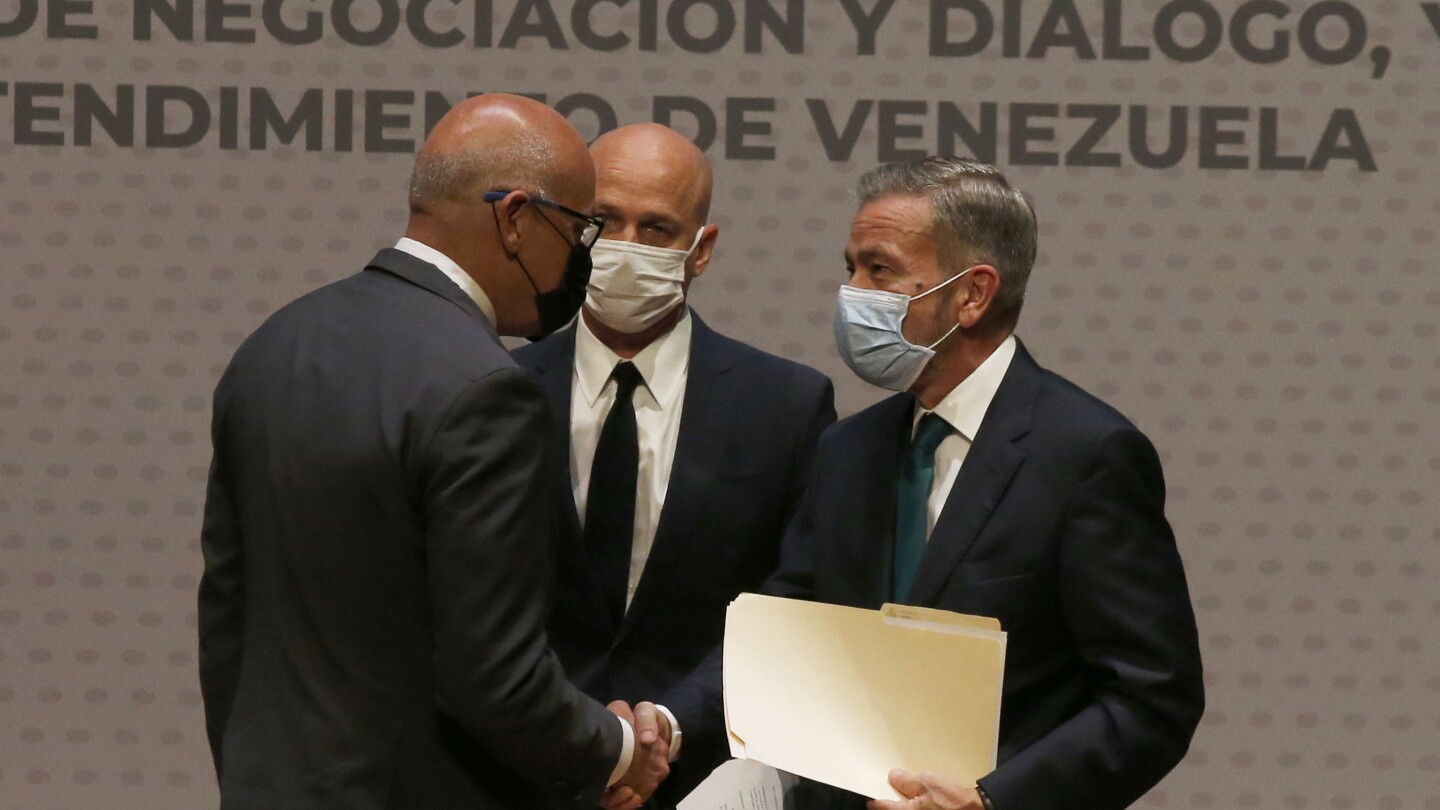CARACAS, Venezuela (AP) — Venezuela’s government and a faction of its opposition formally agreed Tuesday to work together to reach a series of basic conditions for the next presidential election, including scheduling the contest for the second half of 2024.
Their accord was part of agreements that are expected to trigger partial relief from economic sanctions imposed by the U.S. government on President Nicolás Maduro’s administration.
The conditions are spelled out in one of two partial deals signed in Barbados by representatives of Maduro, including his son, and some of his adversaries. They come just before the opposition holds a primary election Sunday to pick its candidate for the 2024 presidential election.
The parties agreed to “recognize and respect the right of each political actor” to select a presidential candidate “freely and according to their internal mechanisms” so long as they follow Venezuelan law.
They also agreed to “promote” with the country’s electoral authorities a set of election guarantees, including proposing an election day for the second half of 2024, establishing voter registration centers, and purging voting rolls.
Maduro, during his TV show Monday, said without giving details that the negotiated terms would guarantee “an electoral celebration in the upcoming elections.”
“Today, I can say that we are on the verge of starting a new round of signing agreements with the oppositions,” Maduro said as he railed against leaks to foreign media outlets about the agreement. “I can say that these agreements will be very beneficial for peace. … They will be very beneficial for the upcoming elections because we will simply activate and reactivate the electoral guarantees provided by our constitution, our laws, our National Electoral Council.”
The deals signed Tuesday will result in relief from U.S. energy sanctions Maduro’s administration, according to a person familiar with the outline of deal. If Maduro doesn’t live up to his end of the bargain, the sanctions will be imposed again, according to the person, who insisted on not being quoted by name as a condition to discuss the agreement before it was signed.
Maduro’s government and the opposition began the latest negotiation process in 2021 with the mediation of Norwegian diplomats. Mexico hosted the talks in 2021 and 2022.
When the sides last met publicly, in November, they agreed to create a U.N.-managed fund to finance health, food and education programs for the poor while the U.S. government agreed to allow oil giant Chevron to pump Venezuelan oil. But the fund, which was meant to hold billions in frozen assets, is yet to funnel money to programs.
Political conditions had long been seen as the most contentious aspects of the negotiations.
The Unitary Platform, the U.S.-backed opposition faction involved in the talks, long sought guarantees for the election to avoid conditions in previous votes that were widely considered to favor pro-government candidates. Maduro, meanwhile, demanded that the U.S. drop economic sanctions and unfreeze Venezuelan funds held overseas.
The Biden administration had said it was open to lifting sanctions in response to concrete actions toward holding competitive elections.
The dialogue formally began in September 2021, but Maduro’s delegates walked away in October 2021 after Colombia-born businessman Alex Saab, a close ally of Maduro, was extradited by Cape Verde to face money-laundering charges in the U.S.
The political, social and economic crisis that has come to define Venezuela has evolved since it began a decade ago as a result of a global drop in the price of oil, Venezuela’s most valuable resource, mismanagement by the self-proclaimed socialist administration and government repression of its opponents.
A brief period of relative economic stability has again been shaken by jumping food prices, business closures and another wave of emigration.
The parties also agreed Tuesday to invite electoral observers from the European Union, United Nations, U.S.-based Carter Center and other organizations.
The presence of election observers, however, has not discouraged the government from carrying out old tactics.
The EU deployed dozens of observers to Venezuela for the 2021 regional elections. During that contest, a gubernatorial candidate for the opposition was retroactively disqualified after results showed he was ahead of one of the government’s candidate, a sibling of the late President Hugo Chavez.
___
Associated Press writer Joshua Goodman in New York contributed to this report.

